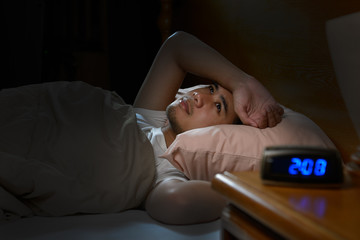Since the coronavirus lockdown, a lot of people claim that they can’t sleep early at night.
Many shared their tales online on how they struggle to get their heads down for bedtime.
According to some psychologists, it’s understandable. It’s due to the fact that the thoughts of some people regarding the pandemic keep their mind wired at night, preventing them from being able to fall asleep or causing them to wake up in a panic during the early morning hours.
So, whether you’ve had sleeping problems before COVID-19 or you’re only experiencing it recently, there are concrete steps that you can take to improve your sleep during this global pandemic.
Stick to a routine
Just because you’re working from home or your appointments are canceled doesn’t mean you’re free to wake up late or at any time of the day. So make sure to have a regular schedule and stick to your regular wake up time. Wake up at the same time every morning to help stabilize your circadian rhythm. If you arise at the same time each morning and avoid napping, regardless of how little sleep you had the night before, chances are you’ll be more tired and could get back on track that evening.
Ditch your phone
Many of us are glued to our phones at the moment – whether it’s to be updated with the latest news or to stay in touch with our friends and family during the lockdown and community quarantine.
However, phones or tablets that emit blue light have been shown to disrupt melatonin levels – the hormone that regulates our sleep/wake cycle.
While it might be tempting to cuddle up with your cellphones at the moment, make sure you allow your brain to switch off in the evening. Experts suggest avoiding social media and emails for 90 minutes before bedtime in order to have a good night’s sleep. Instead, read a book or listen to some relaxing music.
Be careful with coffee
We’re all guilty of drinking coffee throughout the day to keep us going – especially while we’re trying to keep ourselves awake while working from home.
However, time is of the essence when it comes to your daily dose of caffeine. Coffee can actually disrupt your sleeping time if you drink it too early or too late in the day.
So, keep in mind to have your final cup of coffee no later than 5 pm. To chronic insomniacs, however, you might want to stop the caffeine consumption at lunchtime.
Don’t have a large meal right before bed.
If you’ve managed to get some good snacks during your once-a-week trip to the supermarket or had food delivered on your doorstep – make sure you don’t eat it right before bedtime as this can really upset the body’s sleep cycle.
Experts say you should avoid eating within three hours of bedtime to avoid indigestion, acid reflux, and even nightmares.
Shower at 8:30 pm
A recent study has found that taking a shower 90 minutes before bed can help people nod off 50 percent faster and increase their total sleep time by 15 minutes.
This helps your body to reduce its core temperature – a process that is key to falling asleep easily.
With 90 minutes before bedtime, being the prime time for a shower, that means you should be hopping in the bathroom at about 8:30 pm.
Why that time? Taking a shower at 8:30 means you will be in bed and asleep by 10 pm.
10 pm is considered the perfect time to hit the hay as it enables you to get that recommended seven to eight hours of sleep you need to be productive the next day. /rcg
